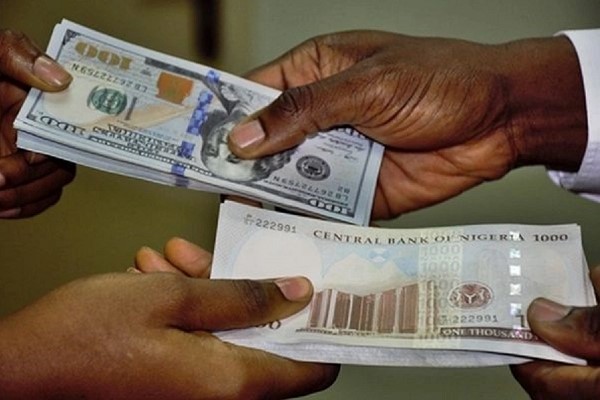Dollar to Naira exchange rate update: April 17, 2025

Abuja, Nigeria- Travelers and businesses closely monitor the dollar-to-naira exchange rate amid ongoing market volatility.
Today, black market rates in major Nigerian cities show the dollar buying at ₦1,600 and selling at ₦1,615, highlighting persistent currency fluctuations. These shifts reflect heightened demand for foreign currency, limited liquidity, and evolving economic conditions.
Multiple factors drive the naira’s instability, including speculative trading, inflation spikes, and rising government debt. Meanwhile, Bureau De Change (BDC) operators report dwindling dollar supplies, worsening pressure on the local currency. Additionally, political uncertainty and global oil price shifts further strain Nigeria’s foreign exchange reserves, deepening reliance on parallel markets.

Key Influences on Exchange Rates
Economic policies, political stability, and global events directly shape the dollar-to-naira trajectory. For instance, recent central bank restrictions on BDC dollar sales intensified scarcity, pushing more users toward informal channels. Furthermore, Nigeria’s inflation rate—now at 28%—erodes purchasing power, fueling demand for stable foreign currencies. High interest rates, though aimed at curbing inflation, have yet to stabilize the naira.
Public frustration grows as banks tighten dollar withdrawals from domiciliary accounts. Many Nigerians now struggle to access foreign currency for travel, education, or imports. Consequently, businesses face rising operational costs, forcing some to halt cross-border transactions or increase consumer prices.
Black Market’s Dual Role
The black market remains controversial, balancing necessity and risk. Critics argue it undermines monetary policy by diverting liquidity from official channels. Conversely, supporters emphasize its role in meeting urgent dollar needs for small businesses and households. Despite government efforts to restrict BDC operations, reliance on parallel markets persists, exposing systemic gaps in forex management.
Experts urge stricter regulation to curb speculation and redirect transactions into formal banking systems. For example, transparent forex allocation frameworks could reduce hoarding and stabilize rates. However, achieving this requires coordinated fiscal reforms and improved investor confidence.
Strategies for Financial Stability
Individuals and businesses can mitigate currency risks by adopting proactive measures. First, compare exchange platforms to secure competitive rates. Second, track market trends using real-time data tools to time transactions strategically. Diversifying investments across stable currencies or assets also shields against volatility. Additionally, leveraging forward contracts or hedging instruments locks in rates for future deals.
Outlook and Preparedness
The dollar-to-naira rate will likely remain volatile due to domestic inflation, global oil dynamics, and policy shifts. Stakeholders must prioritize agility, updating financial plans as conditions evolve. Travelers should budget buffer funds for rate swings, while importers might seek local suppliers to reduce forex dependency.
In conclusion, informed decision-making remains critical in Nigeria’s unpredictable forex landscape. Regularly consulting credible sources, engaging financial advisors, and understanding regulatory changes will empower users to navigate challenges effectively. As the economy adapts, resilience and adaptability will define success in this fluid environment.
Post Views: 28





